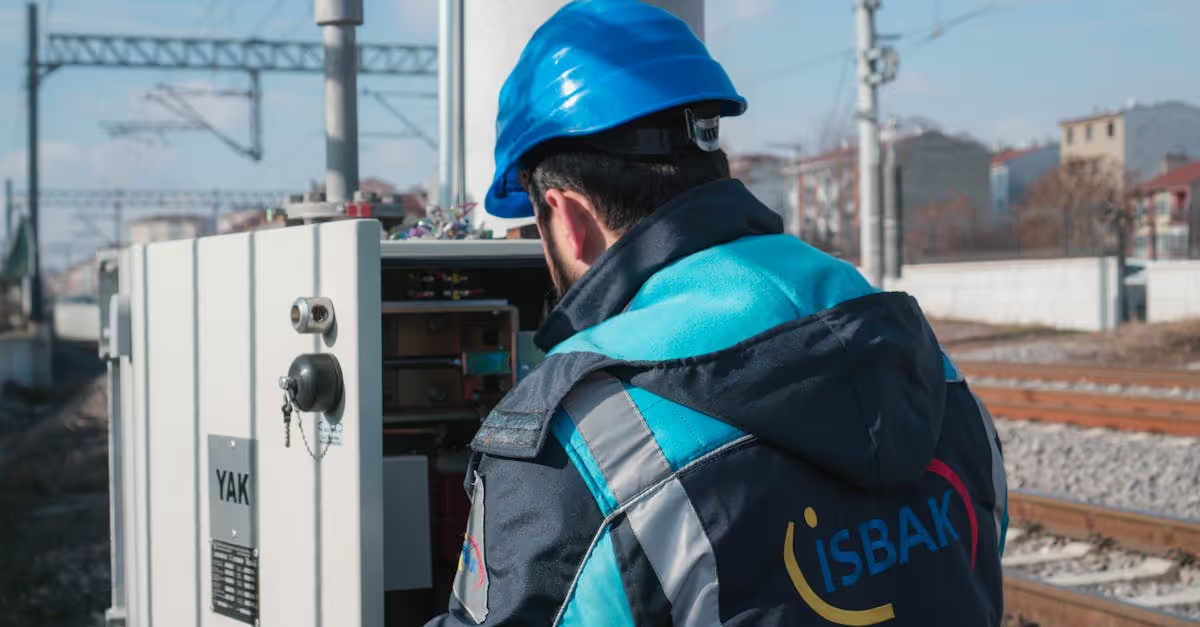Key Takeaways
- Importance of Leak Detection: Identifying hidden leaks is crucial to prevent significant water wastage, which can reach over 10,000 gallons annually, and to maintain cost-effective pool ownership.
- Common Detection Methods: Various techniques such as acoustic sensors, dye testing, pressure testing, and infrared thermography are employed to locate leaks effectively, each with its unique advantages.
- Enhanced Service Delivery: Utilizing advanced technology, including mobile applications and field service management software, streamlines inspection processes, enhances communication, and fosters customer engagement.
- Safety and Maintenance: Regular leak inspections not only protect pool integrity but also prevent safety hazards associated with water pooling, ensuring a secure environment for users.
- Choosing the Right Service: When selecting a leak inspection service, consider factors like experience, technology used, compliance with regulations, and customer reviews to ensure reliable and effective service.
When it comes to pool maintenance, hidden leaks can be a homeowner's worst nightmare. Did you know that a small leak can waste over 10,000 gallons of water each year? That’s not just a hit to your wallet but also a significant environmental concern. Identifying these elusive leaks early is crucial for both conservation and cost-effective pool ownership.
In this article, we’ll explore the various leak inspection services and methods used to detect hidden leaks in pools. From advanced technology like acoustic sensors to traditional dye testing, we’ll break down how each approach works and why it matters. Understanding these techniques will empower us to take proactive steps in preserving our pools and ensuring they remain a source of joy rather than a costly headache.
Overview of Leak Inspection Services
Leak inspection services offer crucial support for pool owners dealing with hidden leaks. We specialize in identifying these leaks efficiently, as even minor issues can lead to significant water loss, costing thousands over time.
Various methods exist for pinpointing leaks, each with its own set of advantages. For instance, acoustic sensors utilize sound waves to locate leaks precisely. These devices can differentiate between water escaping from the pool and normal environmental noises, allowing for quick identification of the problem area.
Additionally, dye testing remains a popular method. By introducing a colored dye into the water, we can observe whether the color gets drawn into any cracks or holes, indicating a leak’s location. This method is straightforward and highly effective.
Incorporating modern technology enhances our approach. Using mobile field service applications helps streamline the inspection process. Technicians can access real-time data, log findings efficiently, and provide homeowners with immediate updates. This leads to a more interactive and engaging service experience, making the process feel collaborative.
We also utilize advanced service business software to manage inspections. This software enables optimal technician scheduling and route management, ensuring our teams efficiently reach each appointment. By focusing on service business growth tools, we strengthen customer relationships and boost satisfaction.
In tandem with these inspection methods, customer engagement strategies like a homeowner service app make communication effortless. Homeowners can track progress, receive notifications, and ask questions. This connection fosters a sense of community and trust, essential for effective leak management.
Another effective technique includes pressure testing, which assesses pool systems for vulnerabilities. Technicians pressurize the plumbing lines to check for drops in pressure, signaling potential leak spots.
Overall, we approach leak inspection holistically. We consider not only the methods but also how we interact with our customers. Each step of the process incorporates feedback, ensuring constant improvement. The combination of advanced tools along with dedicated service leads to comprehensive leak detection solutions for everyone involved.
Choosing the right leak inspection service means selecting experts equipped with the latest technologies. By leveraging field service automation, we minimize potential disruption and keep our customers informed every step of the way. This dedication to effective communication and service management can prevent minor leaks from turning into major repairs.
Importance of Detecting Hidden Leaks
Detecting hidden leaks in pools holds significant importance for maintaining both efficiency and safety. A small leak can waste over 10,000 gallons of water annually, resulting in increased water bills and environmental concerns. We emphasize proactive measures to identify these issues before they escalate.
Impact on Pool Maintenance
Pools require regular maintenance, and hidden leaks complicate this process. Water loss affects chemical balance, leading to potential damage and higher upkeep costs. Efficient leak detection methods, like pressure testing and dye testing, help us maintain optimal water levels and chemical consistency. Utilizing automated field service solutions and technician scheduling tools streamlines our response to leaks, allowing for a quicker resolution.
Safety Concerns
Hidden leaks pose safety risks, including structural damage to the pool and surrounding areas. Water pooling can create slippery surfaces, increasing the likelihood of slips and falls. Awareness of these hazards is crucial for pool owners. Implementing comprehensive leak inspection techniques, such as those powered by field service automation, keeps our pools safe and secure. Through regular inspections, we strengthen our commitment to community safety and well-being.
Common Methods Used in Leak Detection
Identifying hidden leaks in pools involves several effective methods. Each technique serves a specific purpose in protecting the pool's integrity and optimizing maintenance. Here’s a look at some of the most common leak detection methods.
Visual Inspections
Visual inspections start our leak detection process. We look for clear indicators of leaks, such as:
- Unexplained water loss
- Wet spots around the pool area
- Air bubbles in return lines
- Cracks or damage in the pool structure
Observing these signs helps us pinpoint potential issues early. Many of us know that a small drip can lead to a big problem; think of it like a leaky faucet wasting gallons each month.
Pressure Testing
Pressure testing targets leaks in the plumbing system. We isolate specific plumbing sections and apply air or water pressure, monitoring for drops in pressure. A decrease signals a leak. This method effectively narrows down where the problem lies, similar to finding a missing sock in a laundry pile.
Electronic Leak Detection
Electronic leak detection utilizes advanced technology like acoustic sensors. These sensors listen for sound waves created by leaks, providing a precise location. This method works quietly in the background, much like a helpful friend nudging you when you’re about to miss the best part of a movie.
Infrared Thermography
Infrared thermography identifies temperature differences around the pool area. We use thermal cameras to detect these variances, which can indicate leaks. This method feels a bit like wearing night vision goggles, allowing us to see beyond the surface.
Employing these methods gives us a comprehensive view and helps us maintain our pools efficiently. By leveraging advanced approaches like field service automation and automated field service solutions, we streamline the process. Keeping our pools leak-free not only saves water but also enhances our community’s wellbeing. What techniques have you found useful in leak detection for your pool?
Choosing the Right Leak Inspection Service
Selecting the right leak inspection service requires thoughtful consideration. We focus on key factors that help identify the best fit for our needs.
Factors to Consider
- Experience: Check how long the service provider has been in the leak detection business. Experienced technicians often bring technical skills gained from handling various leak scenarios.
- Technology: Look for companies that utilize advanced methods like acoustic sensors or pressure testing. Modern tools often lead to faster and more accurate leak identification.
- Customer Reviews: Read customer testimonials. Positive feedback from other pool owners gives insight into the service quality.
- Compliance: Ensure the company adheres to industry standards and local regulations. Compliance protects both customers and the environment.
- Service Packages: Assess their service offerings. A comprehensive package can include automated field service solutions for maintenance scheduling and leak detection.
Questions to Ask
- What methods do you use for leak detection? Understanding their techniques helps us gauge their effectiveness.
- Can you provide references? Speaking with previous clients can offer real-world insight into their reliability.
- How long does the inspection take? Knowing the timeframe helps in planning effectively and minimizing pool downtime.
- Do you offer ongoing support? Continuous communication after the inspection makes sure issues are addressed quickly if they arise.
- What technology do you use? Asking about field service management software reveals how efficiently they operate and schedule jobs.
By considering these factors and asking the right questions, we enhance our chances of selecting a capable leak inspection service that meets our pool's needs.
Conclusion
Addressing hidden leaks in our pools is essential for preserving water and safeguarding our investments. By employing a variety of inspection methods and technologies we can detect issues early and prevent costly repairs down the line. Utilizing services that combine traditional techniques with modern advancements ensures we maintain optimal pool conditions.
Choosing the right leak inspection provider is crucial. By focusing on their expertise and the technology they use we can enhance our pool's longevity and efficiency. With proactive measures in place we not only protect our pools but also contribute to a more sustainable environment. Let's prioritize leak detection and enjoy our pools worry-free.
Frequently Asked Questions
Why is detecting hidden leaks in pools important?
Detecting hidden leaks is crucial because even a small leak can waste over 10,000 gallons of water annually. This not only leads to increased water bills but also poses environmental concerns, contributing to water shortages and higher maintenance costs.
What are common methods for leak detection in pools?
Common methods include visual inspections, pressure testing, electronic leak detection using acoustic sensors, and infrared thermography. Each method has its strengths in identifying leaks early, allowing for timely repairs and preventing further damage.
How does acoustic sensor technology work for leak detection?
Acoustic sensors utilize sound waves to identify leaks by detecting the sound of water escaping from pipes or cracks. This method is highly effective, as it allows for precise leak location without extensive digging or disruption.
What is dye testing and how is it used?
Dye testing involves introducing colored dye into the pool water to identify leaks. If the dye is drawn into any cracks or holes, it will be visible, indicating the location of the leak. It's a straightforward method for locating surface and minor leaks.
How do leaks affect pool maintenance?
Leaks can disrupt the chemical balance of the pool water and lead to increased upkeep costs. When water levels drop, it can cause imbalances that necessitate more frequent adjustments and treatments, making pool maintenance more expensive and time-consuming.
What should I consider when choosing a leak inspection service?
When selecting a leak inspection service, consider the provider's experience, the technology they use, customer reviews, compliance with industry standards, and available service packages. These factors will help ensure you choose a capable and reliable service.
What questions should I ask potential leak inspection providers?
You should ask about their leak detection methods, the approximate duration of inspections, references from past clients, ongoing support after detection, and the technology they use. These questions will help you gauge their expertise and suitability for your needs.
How can automated field service solutions enhance leak inspection?
Automated field service solutions streamline leak inspections by improving scheduling, communication, and reporting. Utilizing mobile applications can enhance customer engagement and ensure timely responses, making the inspection process more efficient and user-friendly.






